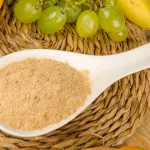Spirulina is a form of algae that thrives in both freshwater and saltwater environments. It is commonly available as a supplement in tablet or powder form. People take it for its nutritional value and antioxidant effects.
Historically used by the Aztecs, spirulina regained attention when NASA suggested it could be cultivated in space as a food source for astronauts.
Today, many use spirulina to increase their intake of nutrients and antioxidants, and it may offer protection against a range of illnesses.
Below are 10 health benefits and uses of spirulina that are supported by scientific evidence.

1. Loaded with a variety of nutrients
Spirulina is nutrient-dense. One tablespoon (tbsp), or 7 grams (g), of dried spirulina powder contains approximately:
- Protein: 4 g
- Thiamin: 14% of the Daily Value (DV)
- Riboflavin: 20% of the DV
- Niacin: 6% of the DV
- Copper: 47% of the DV
- Iron: 11% of the DV
It also supplies modest amounts of magnesium, potassium, and manganese.
The same quantity provides only about 20 calories and under 2 g of carbohydrates.
Spirulina delivers a small amount of fat — roughly 1 g per tbsp (7 g) — containing both omega-6 and omega-3 fatty acids at an approximate 1.5 to 1 ratio.
Moreover, the protein quality in spirulina is regarded as excellent and it includes all essential amino acids the body requires.
Although spirulina is often promoted as a source of vitamin B12, this is misleading. It contains pseudovitamin B12, which has not been demonstrated to be effective in humans.
SummarySpirulina is a blue-green algae grown in fresh and salt water that is very nutritious and a good source of protein, copper, and B vitamins.
2. Contains strong antioxidant and anti-inflammatory compounds
The primary active component of spirulina is phycocyanin, an antioxidant that also gives it its distinctive blue hue.
Phycocyanin helps combat oxidative stress by inhibiting the production of molecules that promote inflammation and exhibits notable antioxidant and anti-inflammatory actions.
SummaryPhycocyanin is spirulina’s main bioactive compound and has potent antioxidant and anti-inflammatory effects.
3. May reduce cholesterol and triglyceride levels
Spirulina can lower total cholesterol, low-density lipoprotein (LDL or “bad”) cholesterol, and triglycerides, while increasing high-density lipoprotein (HDL or “good”) cholesterol — all of which affect cardiovascular risk.
According to studies, spirulina produced significant improvements in these markers among people with metabolic syndrome and related conditions.
SummaryResearch suggests spirulina may decrease triglycerides and improve cholesterol profiles, which could benefit heart health.
4. Shields LDL cholesterol from oxidative damage
Fat-containing structures in the body are vulnerable to oxidative injury. This process, known as lipid peroxidation, is a major contributor to numerous chronic diseases.
Research has shown that antioxidants in spirulina may be particularly effective at lowering lipid peroxidation.
For example, one study reported that spirulina supplementation reduced exercise-induced lipid peroxidation, inflammation, and muscle damage in 17 rugby players.
SummaryFatty components in the body can become oxidized, promoting disease progression. Some evidence indicates spirulina’s antioxidants may help prevent this.
5. Might possess anti-cancer effects
Although further investigation is required, some data indicate spirulina may have anti-cancer activity.
Animal studies have reported reductions in cancer incidence and tumor size in several cancer models.
SummarySpirulina may exhibit anti-cancer properties, but more research is necessary.
6. May help lower blood pressure
One review found that consuming 1–8 g of spirulina daily could significantly reduce systolic and diastolic blood pressure, particularly in people with elevated blood pressure.
This blood pressure-lowering effect is thought to result from increased production of nitric oxide, a signaling molecule that relaxes and dilates blood vessels.
SummarySpirulina may boost nitric oxide production and lower blood pressure, an important risk factor for several chronic diseases.
7. Improves symptoms of allergic rhinitis
Spirulina is commonly used as a complementary treatment for allergic rhinitis, and evidence suggests it can be helpful.
For example, one study found spirulina was more effective than cetirizine, an antihistamine, at improving symptoms of allergic rhinitis and reducing inflammation.
Nonetheless, more research is warranted.
SummarySpirulina supplements may help with allergic rhinitis symptoms, but additional studies are needed.
8. Could help treat anemia
Anemia is relatively common in older adults and can cause prolonged weakness and fatigue.
A 2020 study reported that spirulina supplementation may improve anemia in pregnant individuals during the second trimester. Research in 2021 also indicated potential benefits for iron deficiency in young children.
However, further high-quality and up-to-date trials are still needed.
SummaryEvidence indicates spirulina might improve anemia in pregnant people and iron deficiency in children.
9. May enhance muscle strength and endurance
Oxidative damage caused by exercise contributes to muscle fatigue.
Spirulina may reduce this damage, with some studies showing improved muscle strength and endurance.
In certain trials, spirulina supplementation improved oxygen uptake during arm-cycling exercise, suggesting it could act as an ergogenic aid to enhance athletic performance.
SummarySpirulina may offer exercise-related benefits such as greater endurance and increased muscle strength.
10. Could aid blood sugar management
Some evidence suggests spirulina may help lower blood glucose.
Research in humans has found that spirulina doses between 0.8–8 g per day can significantly reduce fasting blood glucose in people with type 2 diabetes.
However, no significant effects were observed for post-meal blood sugar or hemoglobin A1c, a marker of long-term glucose control.
Therefore, additional research is required.
SummaryThere is some support that spirulina may benefit people with type 2 diabetes by lowering fasting blood glucose, but more studies are necessary.
Frequently asked questions
What does spirulina do to the body?
Spirulina provides protein, vitamins, and minerals and has antioxidant properties. It may help reduce inflammation and support management of blood sugar, cholesterol, and blood pressure, among other effects.
Who should avoid spirulina?
Spirulina is generally regarded as safe. The Dietary Supplements Information Expert Committee (DSI-EC) has stated it does not pose a major health risk. Still, it can cause side effects in some people, such as sleep disturbances and digestive issues.
Individuals taking certain blood-pressure medications, immunosuppressants, or cholesterol-lowering drugs may need to avoid spirulina due to potential interactions with compounds in the supplement.
Always consult a healthcare professional before using spirulina, follow dosing instructions, and obtain supplements from a reputable supplier. Some products can be contaminated with heavy metals, toxins, or bacteria.
Learn more about spirulina’s risks and side effects.
Is it safe to take spirulina daily?
Most people who use spirulina take it regularly. A healthcare provider can recommend appropriate frequency, dosage, and duration.
The bottom line
Spirulina is a form of cyanobacteria, often called blue-green algae, that is highly nutritious.
Research indicates it may improve cholesterol and triglyceride profiles, reduce oxidative stress, lower blood pressure, and decrease fasting blood glucose. Still, more research is warranted.
If you’re interested in trying this supplement, it is widely available both in stores and online.


















Leave a Reply
You must be logged in to post a comment.